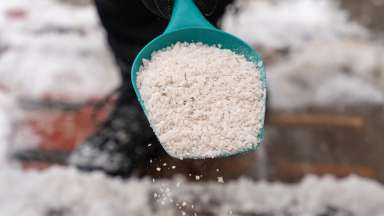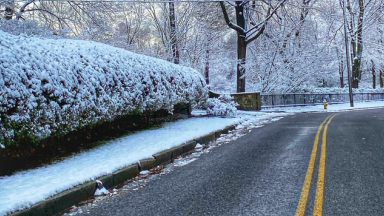Jump To:
If you see stormwater pollution, call the Stormwater Helpline at 919-996-3940 or email IllegalDischarge@raleighnc.gov.
How Salt Can Harm Streams
Snow and ice melt carry road salt and other pollutants in storm drains and local waterways. Too much salt in water can harm plants and animals that live in or near streams and rivers. Road salt dehydrates plant roots that and animals can mistake road salt for food.
Using Salt Near Storm Drains
Before Applying Salt
Shovel and/or scrape as much snow and ice from the sidewalk, driveway, or road before applying salt. Make sure you don't block storm drains when you shovel.
Applying Salt
Follow directions on the salt bag or container before applying salt to surfaces. Apply to slick/icy areas only. Be sure to shovel snow away from the storm drain after ice melts.
Re-applying
If you need more salt because the area is still icy - make sure you don't use too much! Only apply in places that are slick or icy.

Practices for Professionals
Do you work with road salt or do road maintenance in the winter? Follow these tips to keep pollution out of the stormwater system. You'll protect the environment and help us meet permit requirements.
- Pile salt and ice melt away from storm drains, ditches, and waterways.
- Follow instructions on salt labels so you only apply the required amount to roads.
- Slow down when driving the plow near waterways, wetlands, and other environmental areas.
- Regularly clean, inspect, and repair equipment in a designated area. (i.e. indoors or where you can use inlet protection)
- Store equipment and salt to keep contaminates from reaching storm drains.
